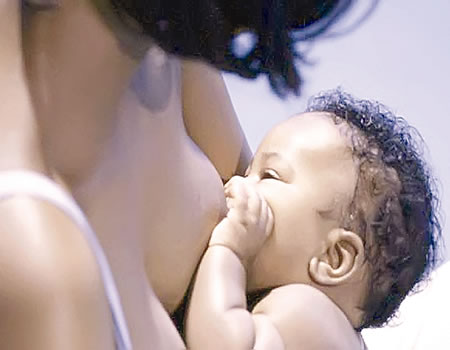Dr James Oloyede, Director, Nutrition Services and Education, State Primary Healthcare Board, Osun State, said this at a three-day zonal capacity building workshop on monitoring and enforcement of the code of Breast Milk Substitutes (BMS) in Benin.
The workshop, organised by the Edo State Ministry of Health in collaboration with the United Nations Children’s Fund (UNICEF), had participants drawn from the National Agency for Food, Drugs Administration and Control (NAFDAC); National Primary Health Care Development Agency (NPHCDA), federal and states ministries of health and hospitals management board, media and the Academia.
Dr Oloyede said monitoring and enforcement of the code of breast milk substitutes (BMS) is central to mitigating the loss and improving Nigeria’s exclusive breastfeeding rate.
He declared, “Breastfed children have at least six times greater chances of survival in the early months than non-breastfed children, and an exclusively breastfed child is 14 times less likely to die in the first six months than a non-breastfed child.
With Nigeria’s exclusive breastfeeding rate of 23.7 per cent in children below the age of six months, he said about three million children each year do not get the benefits of breastfeeding.
Mr Azikiwe Kenneth, Ondo State coordinator, NAFDAC, said the code of marketing breast milk substitute is a minimum requirement to be adopted in its entirety to protect breastfeeding and healthy practices in respect of infant and young child feeding.
He stated: “We want everyone to keep the code so that at the end of the day, we have healthy, breastfed children. It will remove the pressure from BMS manufacturers so that its usage will be of choice. The aggressive marketing is making BMS a thing of status.”
Mrs Ada Ezeogu, UNICEF’s nutrition specialist, Akure office, said if infants had a voice, they would choose breast milk.
She said, “We are fighting for the voiceless, the children. We are not saying that there are not situations where breast milk is not required; we are saying follow the rule. Let the first option be breast milk.
Nursing mothers should be allowed to make their choice on how to feed their babies without being coerced by anyone.”
Meanwhile, in a communiqué issued at the end of the meeting, stakeholders observed low awareness of importance of exclusive breastfeeding and provision of the code of marketing breast milk substitutes and inadequate communication on the provision of the code among relevant institutions in the country.
They recommended that NAFDAC provide a summarised and simplified form of the code for the use of the general public; liaise with various agencies to cascade training of stakeholders on the code as well as be the focal point for coordinating the monitoring and enforcement of the code.






